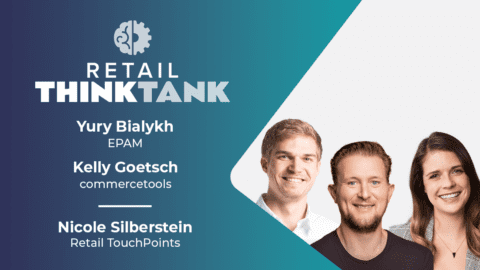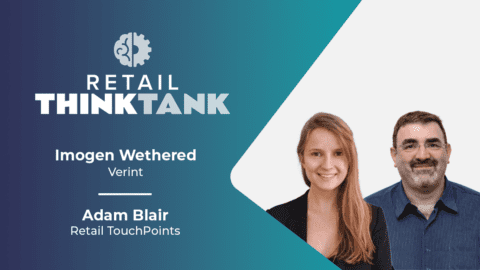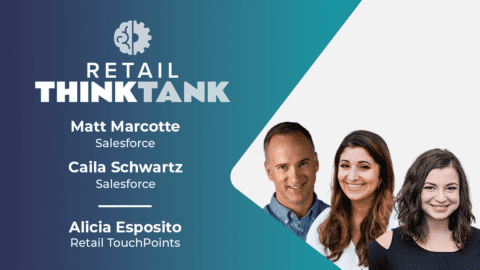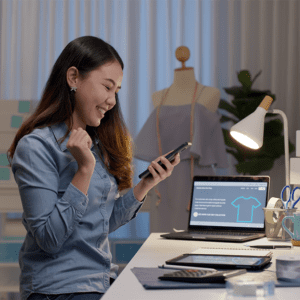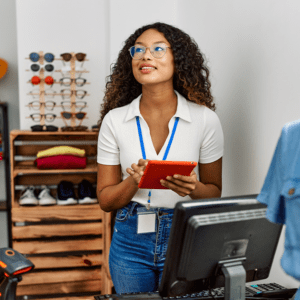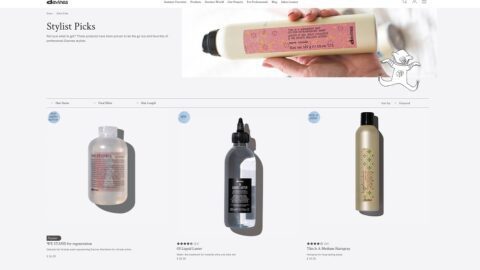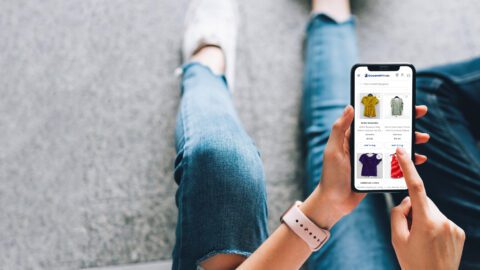Gen Z is arguably one of the most in-demand, and yet most elusive, generations of our time. While some brands claim to completely understand what these consumers really want, there are many times when Gen Z shoppers’ thoughts and behaviors don’t quite match up. And at a time when knowing and resonating with your customer is the key to survival, retail brands are hoping to get further context.
Context is essentially what the Retail Influencer CEO Forum was designed to provide. The day-long event hit on various hot topics closely linked to these digitally native consumers, including authenticity, sustainability, mental health and wellness. Executives from Aerie, American Eagle, Coach, Forever 21 and True Religion offered perspectives on how this demographic has shifted their strategic roadmaps and daily decision-making, but conversations were augmented by feedback from the Z Suite, a network of Gen Z thought leaders who are aiming to work alongside retailers and industry solution providers.
At the end of the day, four themes helped paint a more contextual picture of who the Gen Z consumer is and what they really want:
Authenticity and Accessibility
Authenticity has become a marketing buzzword in its own right, but members of the Z Suite agreed that they want to feel emotionally connected to brands they buy from. They also want to feel represented in marketing materials and even in product design.
As a result, brands such as Aerie and Bubble are putting consumer insights at the center of their decisions to ensure they’re forming the right partnerships and embracing the right engagement strategies across channels.
Many would say Aerie is one of the front-runners in this area because of its commitment to showcasing different bodies, eliminating retouching in advertising materials and building out partnerships that support its authenticity mission. But it is through its partnerships with creators and advocates like gold medal gymnast Aly Raisman that Aerie is able to bring its authenticity and values to the next level.
“The most important thing for us at Aerie is finding people who understand the importance of building confidence in young people,” said Stacey McCormick, SVP of Aerie Marketing. “2014 is when we launched our #AerieReal movement, and since then we’re always looking for partners that help amplify our story and share the vision. With Allie, it was a no brainer.”
But the brand isn’t stopping there: through a new partnership with Liberare, Aerie has brought a new line of adaptive and adaptive-friendly intimates to market in order to be more inclusive and serve the millions of people with disabilities and chronic pain.
Bubble uses its community of 10,000 Gen Z consumers to guide its entire brand direction. “Gen Z has been involved with every aspect of the brand, from packaging to branding to experience,” said Shai Eisenman, Founder and CEO of Bubble, a skincare brand that recently shifted from DTC to omnichannel. “Every product is tested by at least 50 Gen Zers before we launch, so this process is very much embedded into everything we do.”
In fact, the brand recently ventured into CVS and Walmart stores largely because its consumer community said they use these stores the most to get skincare and other miscellaneous products. Although Bubble products are designed with high-quality dermatological ingredients, the brand also ensures all products are priced modestly to ensure Gen Z shoppers have access.
Access to Community
Gen Z has grown up immersed in technology. Social media sites and apps have never had the novelty older generations experience because they’ve always been available to them. One result: Gen Zers will often reject sites that lack authentic emotional connections.
For example, during the closing “Ask Me Anything” session, a panel of Z Suite members collectively agreed that while they used to use dating apps, especially during pandemic lockdowns, they have largely veered away from them. Some noted a series of “creepy” or unsettling interactions. Others shared that while they’ll mindlessly scroll and swipe through feeds of potential suitors, they largely don’t engage with them. Instead, these consumers are craving organic, human-to-human interaction.
Social media sites and gaming platforms can provide this access to individuals and larger communities, which is why many Gen Zers are gravitating to them. Although there are debates around whether these experiences are harmful to users’ mental health, the vast majority (88%) of Gen Z consumers play a game that puts them in a virtual world, according to the YPulse Metaverse Trend Report.
These platforms are virtual worlds “where you’re able to do more than just play a game,” said MaryLeigh Bliss, Chief Content Officer of YPulse. “You can buy things, hang out with friends and have experiences. These things already exist in spaces where Gen Z has been playing since their infancy, such as Roblox, Animal Crossing and Minecraft. These are games, but they’re also places where Gen Z are just being and spending time with friends.”
Advertisement
And these authentic communities and virtual experiences are leading to commerce. Bliss explained that the majority of Gen Z has purchased a virtual product and that they are buying branded merch in the metaverse: approximately 40% of Gen Z consumers have purchased apparel and accessories for their avatars. Forever 21 has launched virtual goods in the metaverse and, due to their success, may create “physical twins” of these goods for purchase in stores and online.
Mental Health and Wellness
Gen Z has grown up in turmoil. From 9/11 to the Great Recession to the pandemic, this generation of consumers has had to experience (directly and indirectly) society-wide stress and uncertainty, and that has ultimately impacted the way they navigate their daily lives.
That’s why when self-care and mental health became the cornerstone of campaigns and brand conversations during the pandemic, it resonated with Gen Z, and they want to see more of that candor from brands.
“Compared to millennials, Gen Z is more anxious, they’re more stressed and they tend to be a bit more dark,” noted Bliss. “They tend to use a lot of dark humor to deal with things, especially while thinking about the future.”
For brands, this presents a clear opportunity. Because Gen Z is far more open about mental health and sees it as a key pillar of wellness and self-care, its taboo quality has been largely eradicated: 71% of Gen Z consumers like when brands make mental health a part of their marketing and messaging, according to YPulse data. Brands can tap into this newfound openness and find ways to have more authentic conversations with consumers, and also contribute to organizations and causes that resonate.
“We see a lot of brands doing this in very interesting ways,” Bliss noted, “such as Netflix having conversations with their young stars completely focused on mental health, or Jansport, which made mental health one of the key parts of its marketing to Gen Z.”
Retail brands like Victoria’s Secret are actively (and openly) trying to change consumers’ perceptions by being more open about mental health. In addition, Aerie is partnering with companies like Wondermind, which is a platform and community of sorts that provides access to mental fitness exercises, resources and content.
“We’re working with the biggest brands in the world to show their commitment to mental fitness and health because it’s not only a killer of success and authenticity, it’s also something that’s important to the millennial and Gen Z audience,” explained Daniella Pierson, Co-founder and co-CEO of Wondermind. “By aligning yourself publicly with Wondermind, you’re saying you’re putting your money where your mouth is, which is so important for Gen Z and millennials.”
Sustainability
And of course, we could not write about Gen Z without mentioning sustainability. The data from YPulse makes a strong case for retailers to invest in more sustainable practices, from product sourcing to packaging and shipping: 79% of Gen Z consumers agree that brands should take more responsibility for fighting climate change.
However, an interesting dichotomy emerges when it comes to actual purchase behavior. While the data shows that 50% say they would like to buy more eco-friendly products, they care about price more. Some Gen Z consumers are bringing these two realities together by being thriftier and more creative with their purchase decisions and, specifically, their fashion choices. In the “Ask Me Anything” session, the majority of the panel said they relied on thrift stores, deep discounts and resale sites like Poshmark to get many of the items they were wearing on stage, especially luxury designer goods.
With fashion being the biggest perpetrator of waste, retailers like Forever 21 are focused on taking action. “It’s about progress, not perfection,” said Forever 21 CEO Winnie Park. “The whole retail industry has a lot to do around sustainability, especially fashion, and for us, it’s about building a roadmap.”
Park noted that last year, 15 million pieces were sustainable and this year, 40% of women’s denim is sustainable and recycled. Next year, that number is expected to reach 50%.
However, Park recognizes there’s still work to be done and listening is a big part of their success moving forward: “We’re in the active role of listening and trying to figure out what else we can do,” she said. “This is how we want to partner with Gen Z. We want to bring them in as co-creators, as counsel and advisors.”





